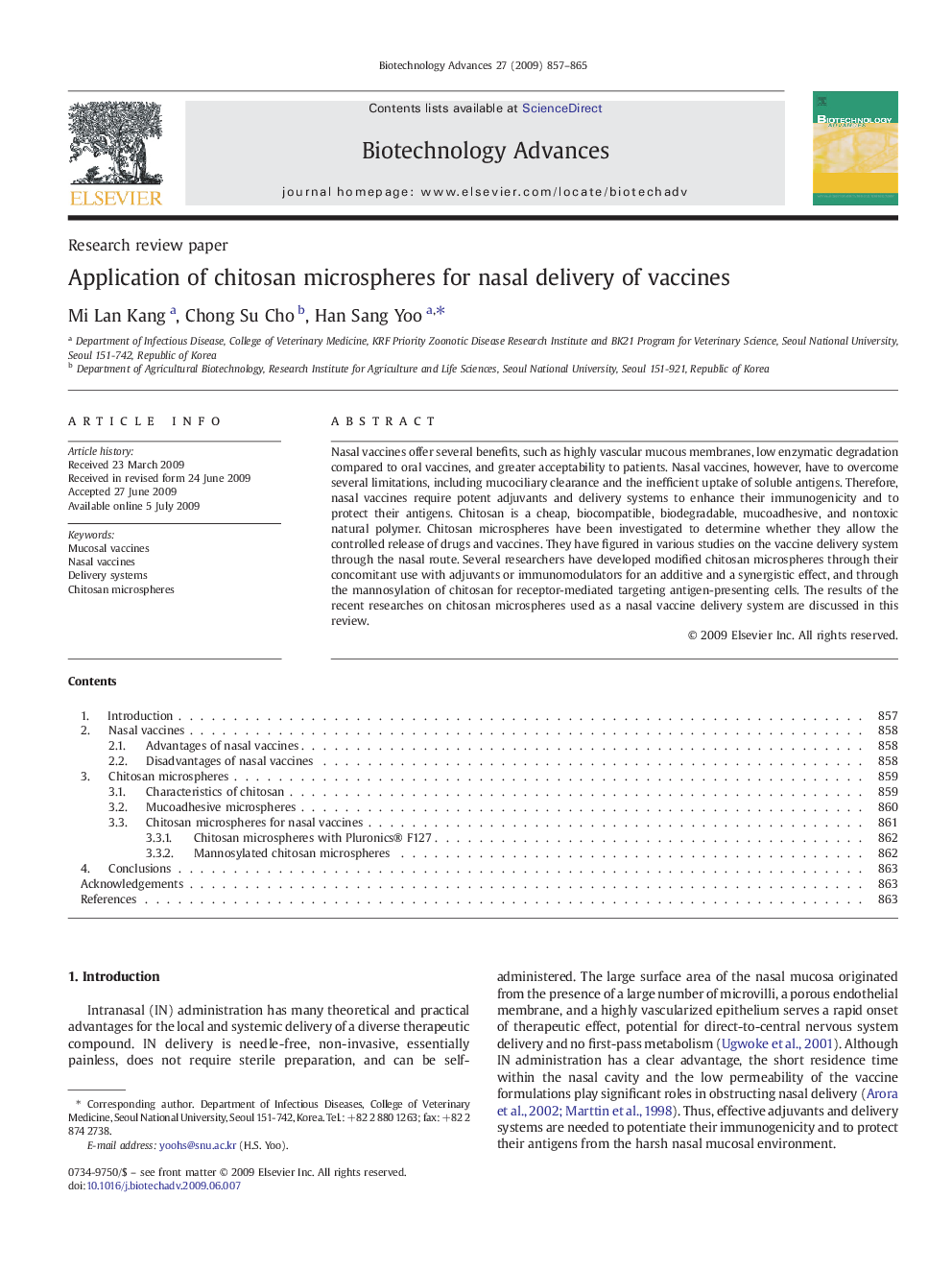| Article ID | Journal | Published Year | Pages | File Type |
|---|---|---|---|---|
| 14657 | Biotechnology Advances | 2009 | 9 Pages |
Nasal vaccines offer several benefits, such as highly vascular mucous membranes, low enzymatic degradation compared to oral vaccines, and greater acceptability to patients. Nasal vaccines, however, have to overcome several limitations, including mucociliary clearance and the inefficient uptake of soluble antigens. Therefore, nasal vaccines require potent adjuvants and delivery systems to enhance their immunogenicity and to protect their antigens. Chitosan is a cheap, biocompatible, biodegradable, mucoadhesive, and nontoxic natural polymer. Chitosan microspheres have been investigated to determine whether they allow the controlled release of drugs and vaccines. They have figured in various studies on the vaccine delivery system through the nasal route. Several researchers have developed modified chitosan microspheres through their concomitant use with adjuvants or immunomodulators for an additive and a synergistic effect, and through the mannosylation of chitosan for receptor-mediated targeting antigen-presenting cells. The results of the recent researches on chitosan microspheres used as a nasal vaccine delivery system are discussed in this review.
